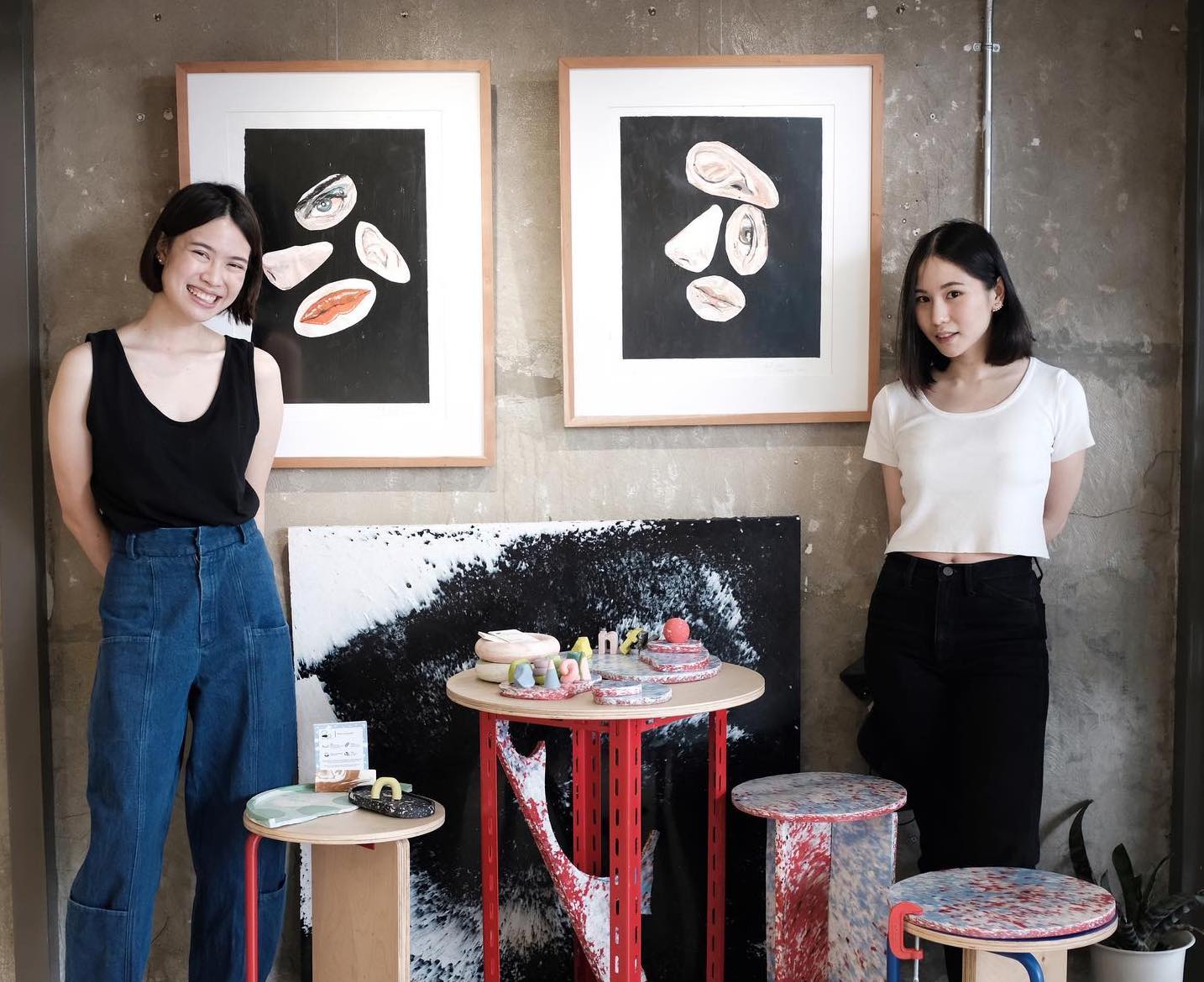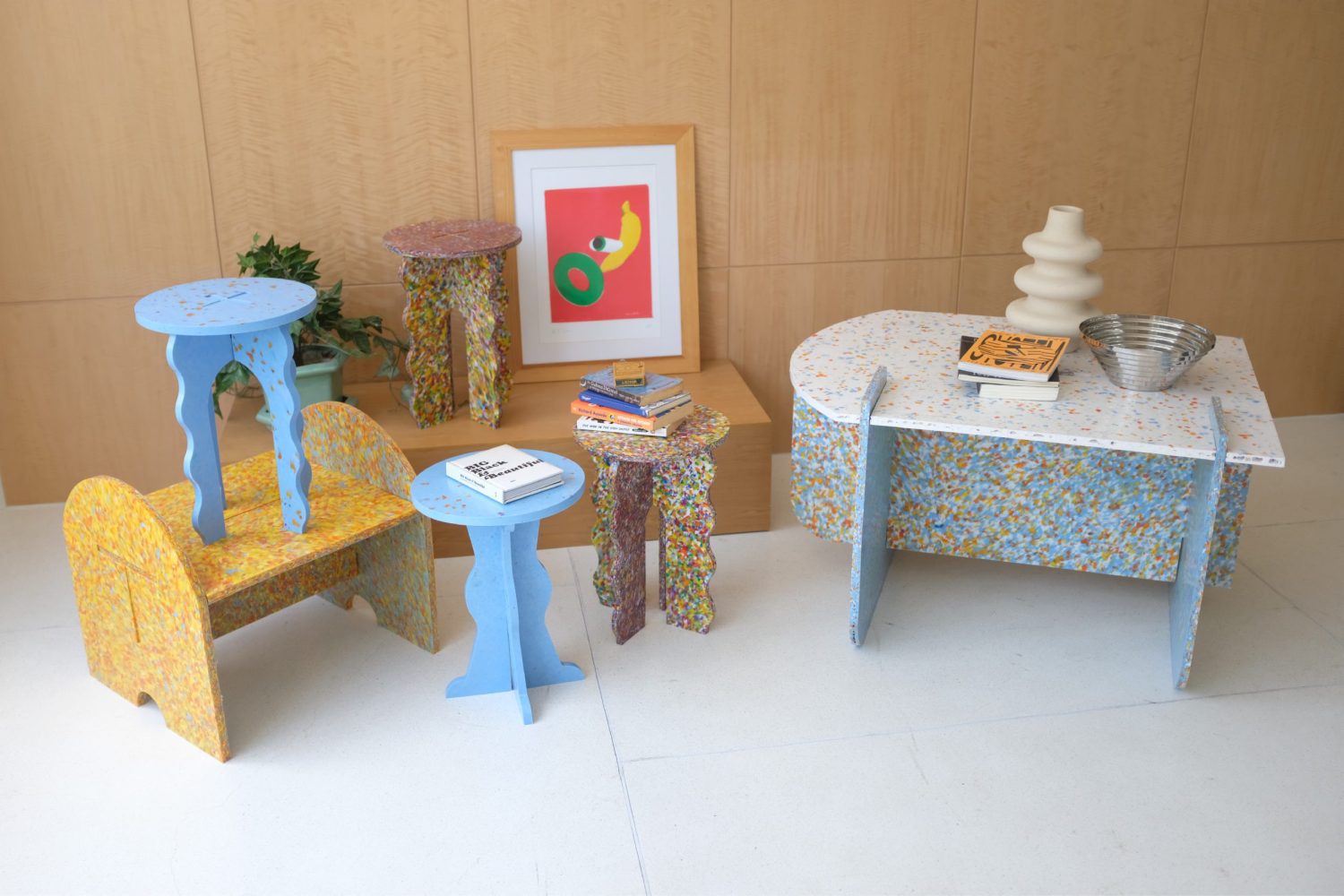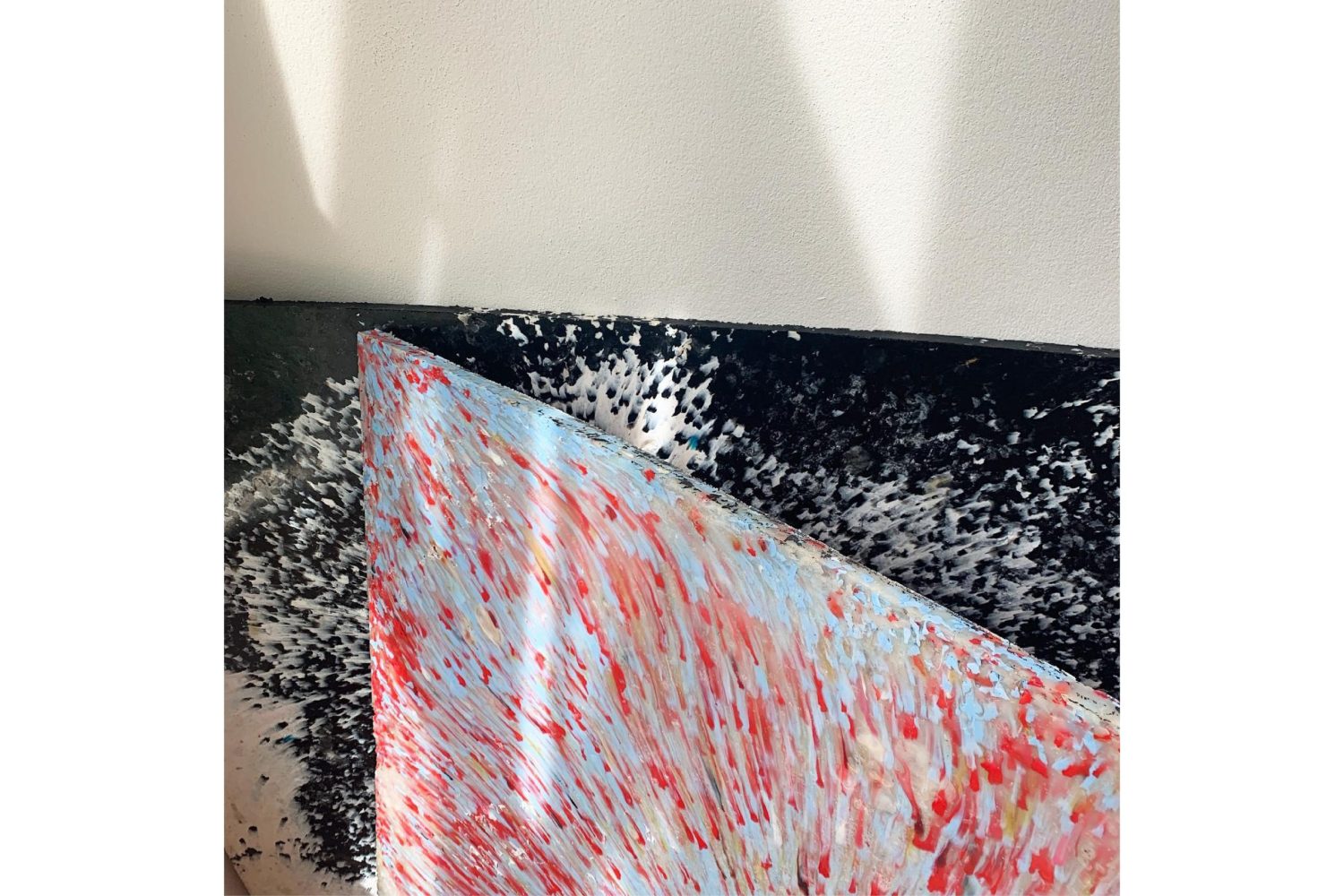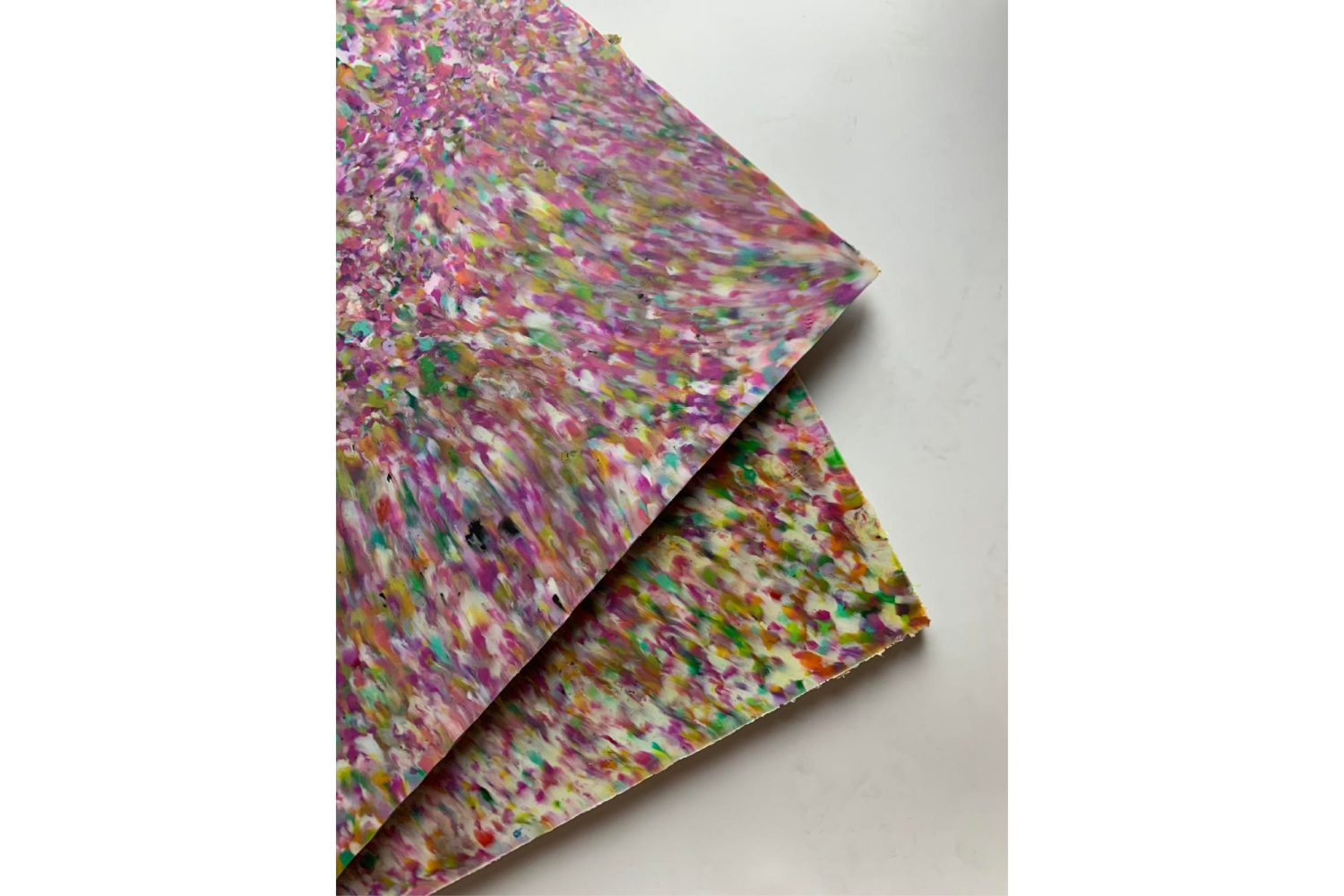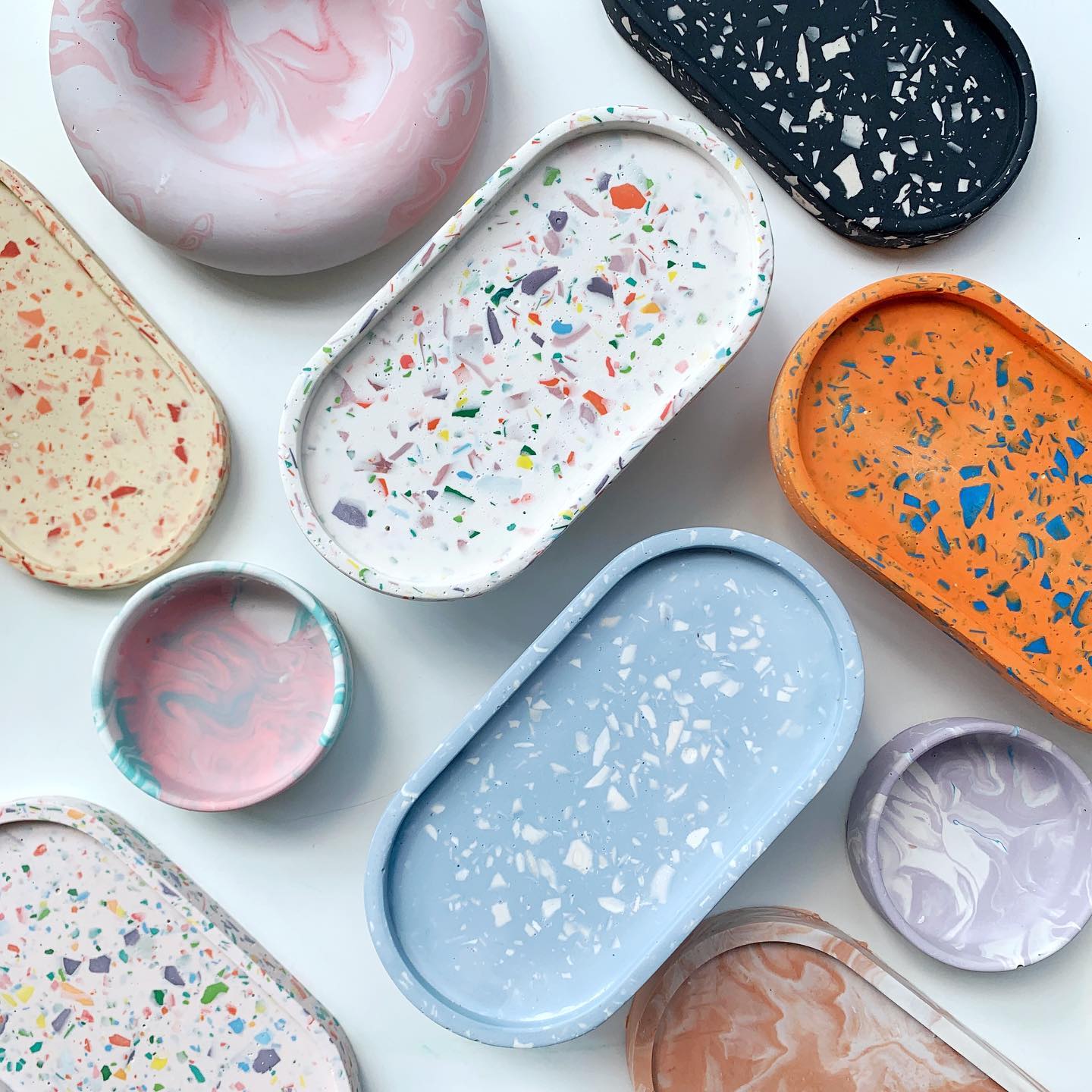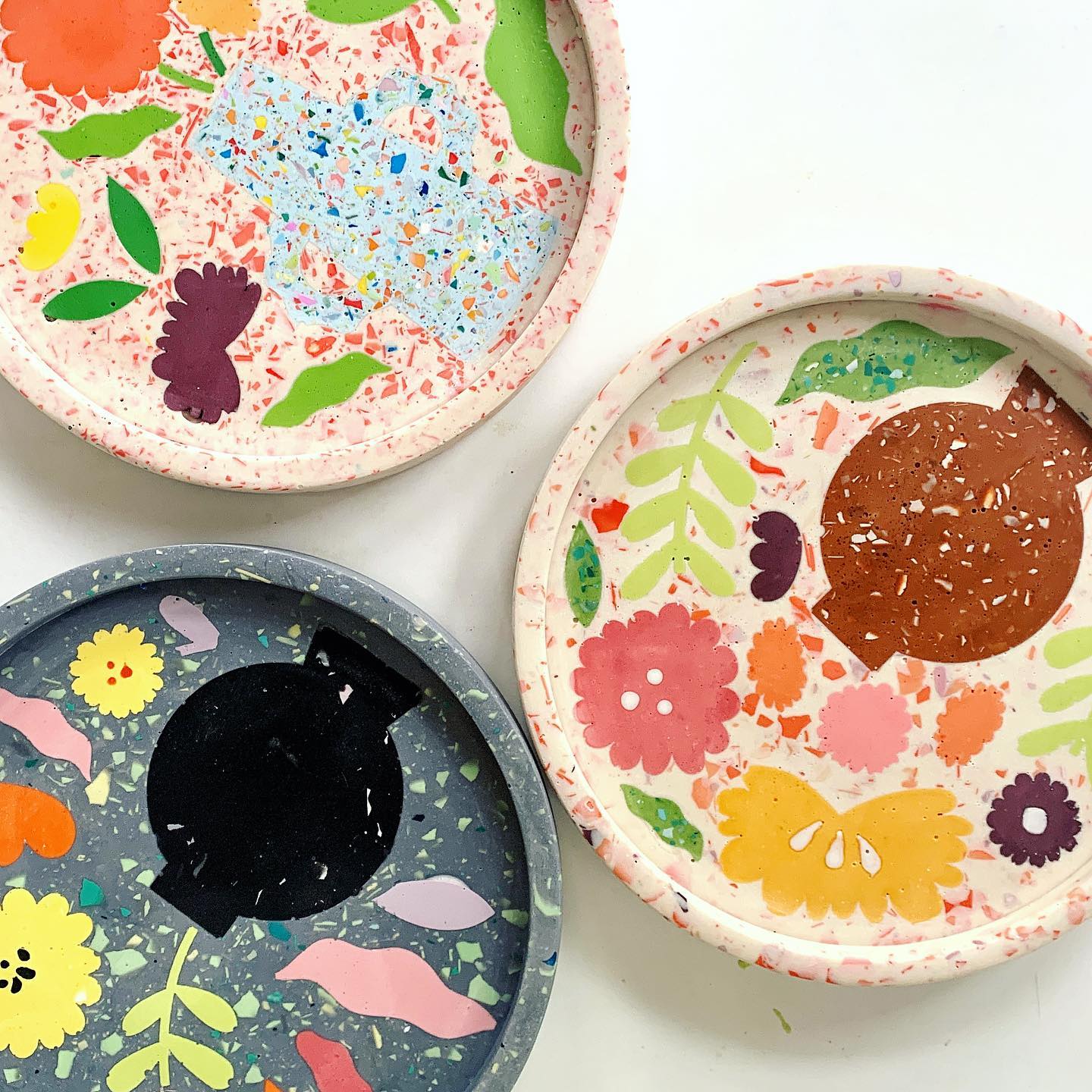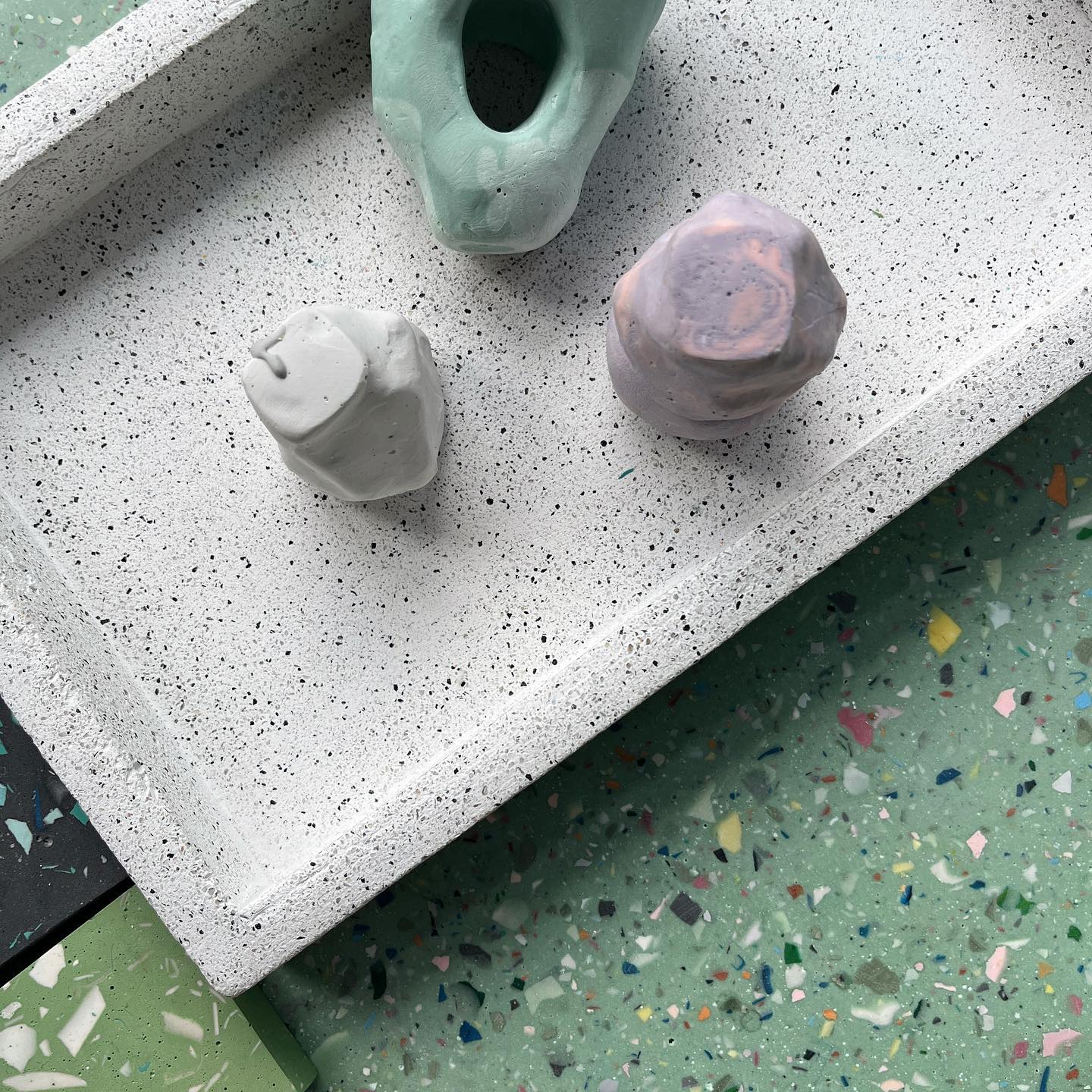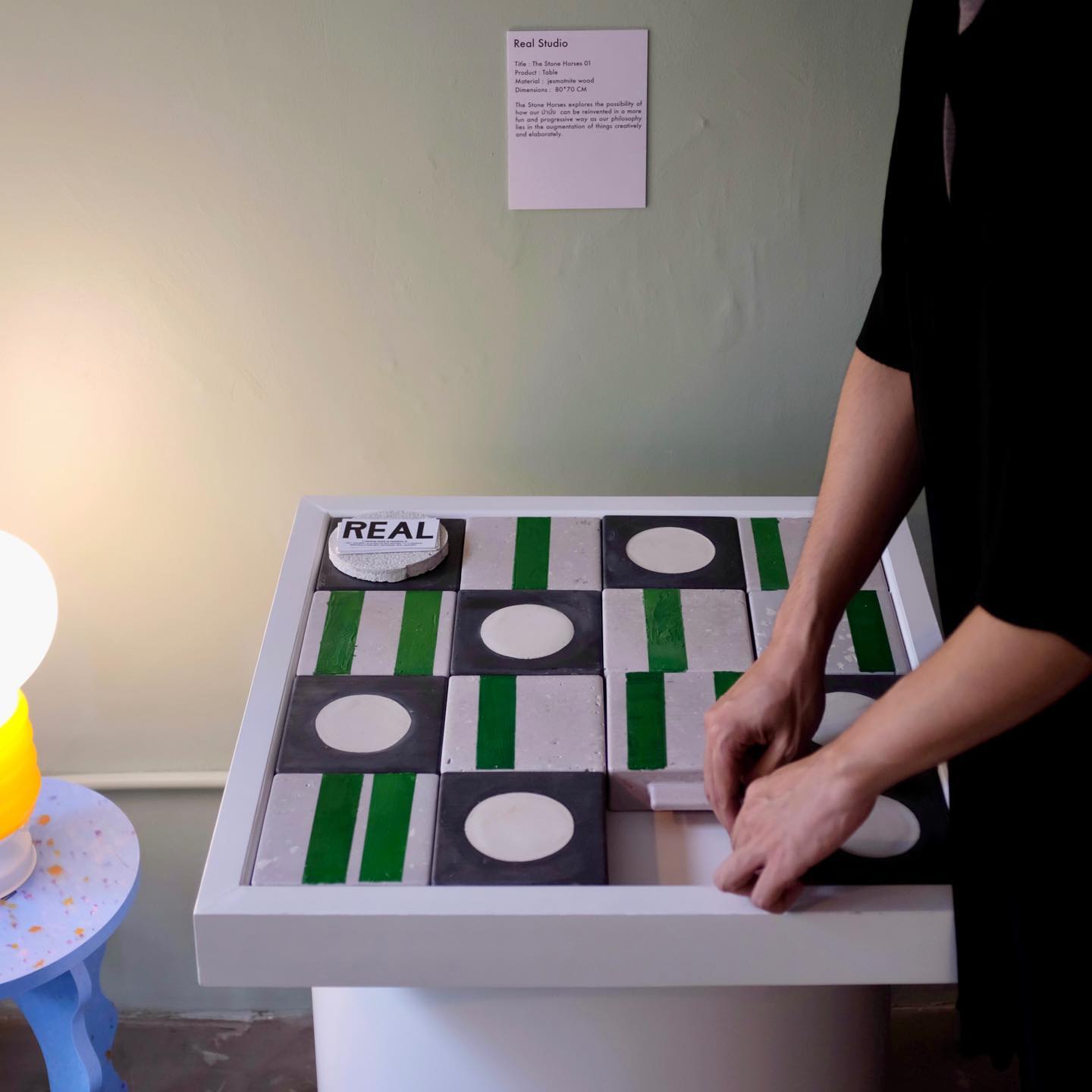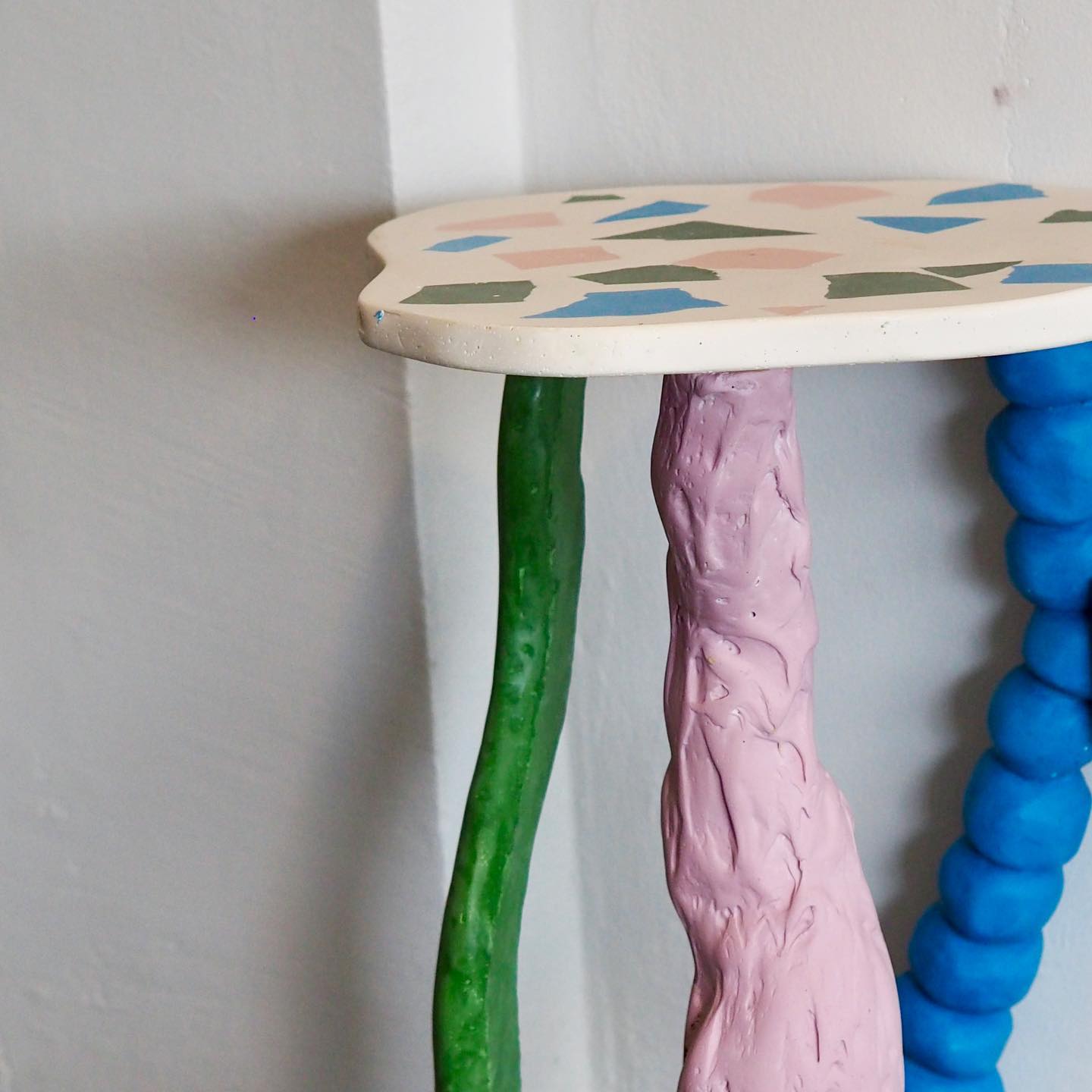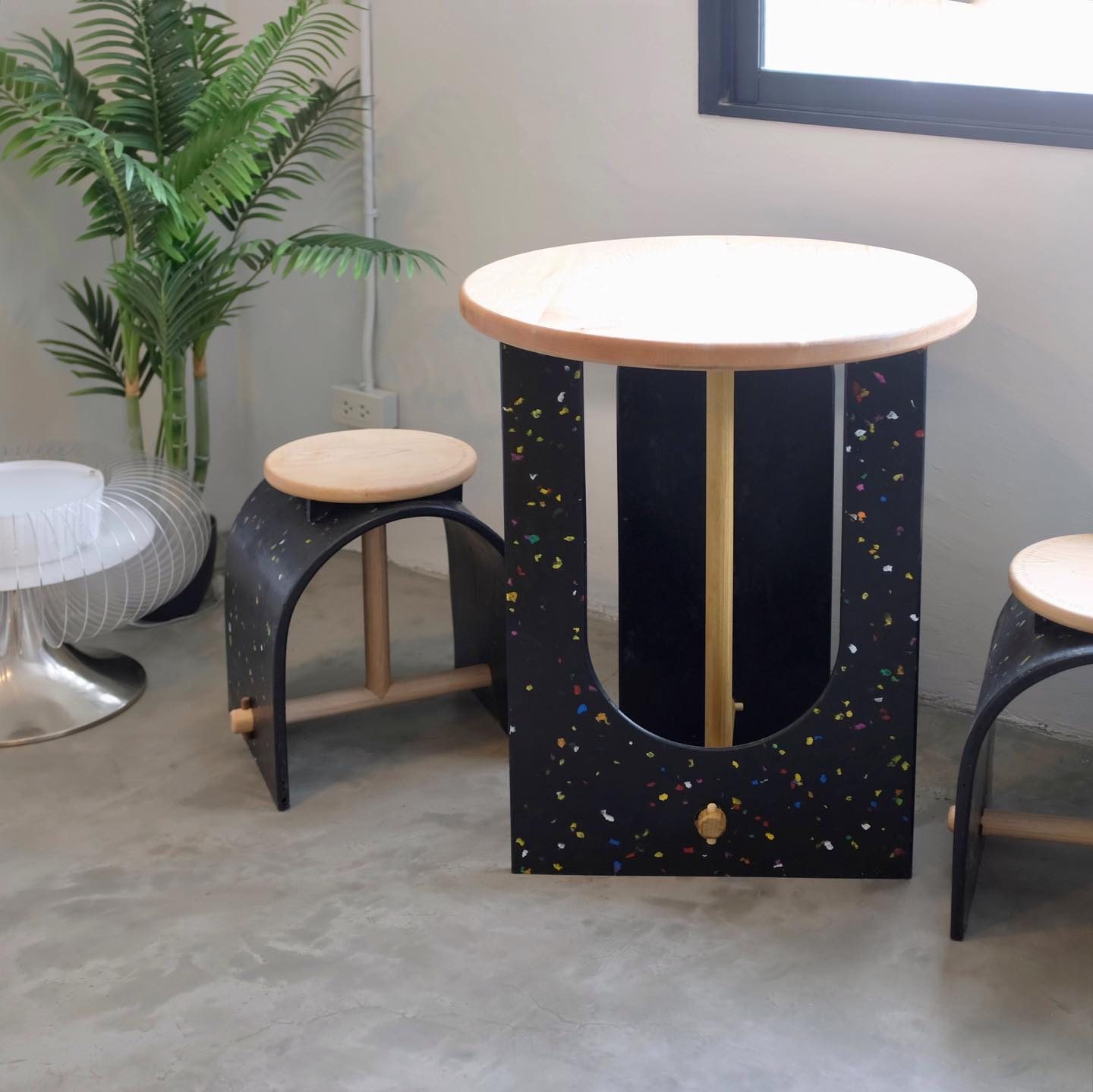A DESIGN LAB WITH THE INTENTION TO TRANSFORM ABANDONED RECYCLED AND ECO-FRIENDLY MATERIALS INTO HOME DECORATION AND FURNITURE, ILLUSTRATING THE ALTERNATIVE WAYS OF DESIGN THAT ARE BOTH FRIENDLY TO THE ENVIRONMENT AND CATER TO DESIGN LOVERS
TEXT : SURAWIT BOONJOO
PHOTO COURTESY OF NOT TOO VIRGIN DESIGN LAB EXCEPT AS NOTED
(For Thai, press here)
“We provide new possibilities for transforming recycled and greener materials through good designs.”
It all began with some bit of window shopping for furniture and home decoration items for their homes in Bangkok. Shortly after Kwanchan Sonkakul and Sirada Kulpaisan had completed their master’s degrees at the University of the Arts London (UAL), they were preparing to return home and came upon a product made of recycled plastic. It prompted an idea that became the starting point for their journey to search for new material possibilities. Not Too Virgin Design Lab was born from the two’s shared passion for home décor items and crafts and their desire to find sustainable alternative substitute materials that are both user-friendly and environmentally friendly.
“It’s probably still new to Thailand—products such as recycled plastic furniture or furniture design that truly prioritizes sustainability. That is what motivates us to do this. We may not be formally trained in product design, but we have the material as our selling point.”
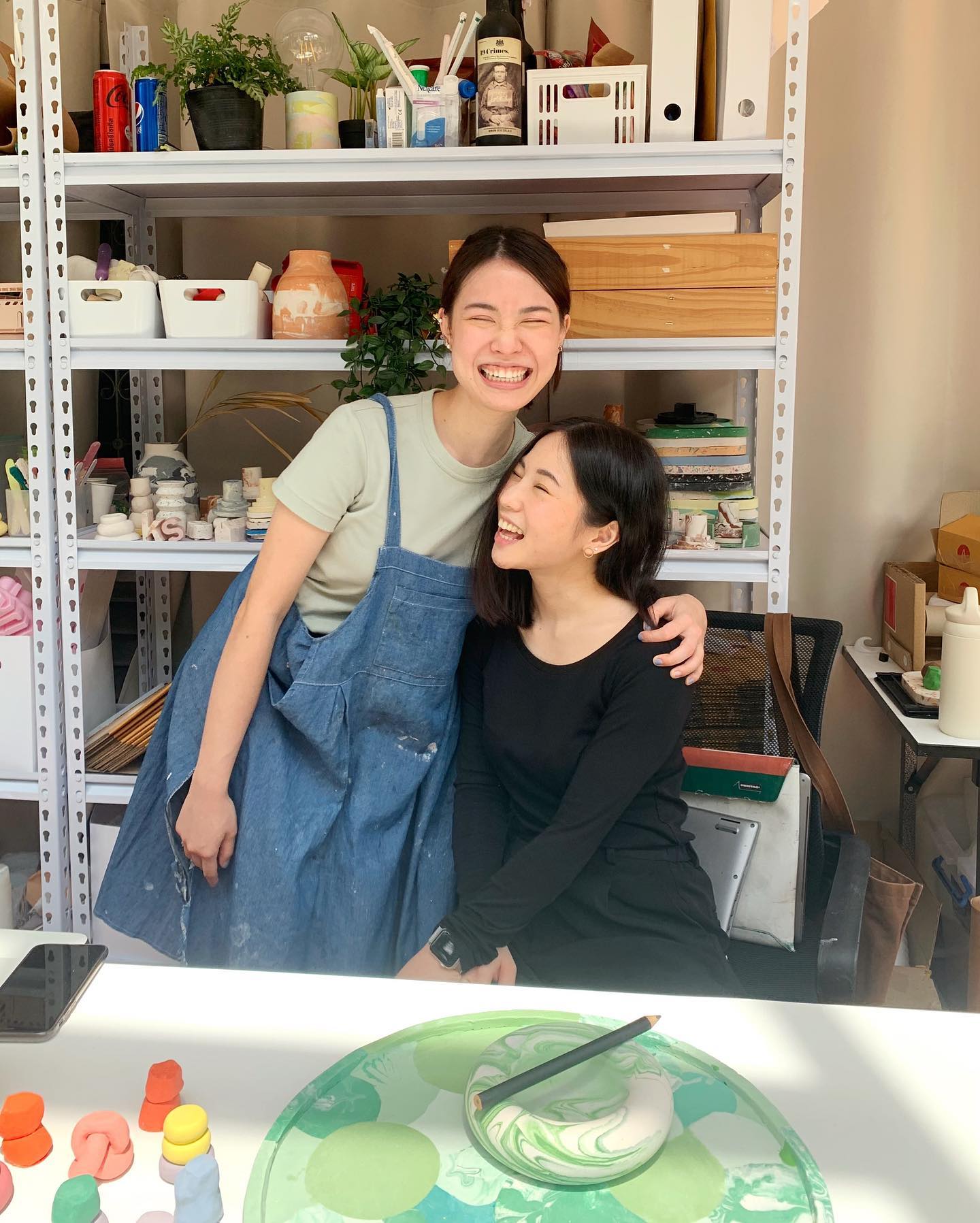
Kwanchan Sonkakul (Left) and Sirada Kulpaisan (Right)
Not Too Virgin Design Lab advertises itself as a specialist in new alternative materials. The brand was created through research and learning from the perspective of actual users. While the “not too virgin” part of the brand’s moniker suggests and symbolizes the nature of materials that have already been used in some ways, the two founders’ wish is for Not Too Virgin Design Lab to become a hub of recycled and eco-friendly materials with creative and innovative uses of environmentally beneficial materials as the cornerstone.
Kwanchan and Sirada began by developing the machine used to produce recycled plastic sheets. The endeavor is carried out in collaboration with the organization Precious Plastic, whose purpose is to provide guidance and knowledge to local communities about recycling and adding value to plastic waste. The recycled plastic sheets are made of HDPE, commonly used in water caps, shampoo bottles, and food containers. The sheets are notable for the brilliant colors and patterns produced in which approximately 10,000 water caps are sorted by color, mashed, and molded into sheets using a high-heat generator. The machine aids in the melting of plastic waste into a homogeneous raw material. Each step of the process contributes to the sheets’ strength and longevity.
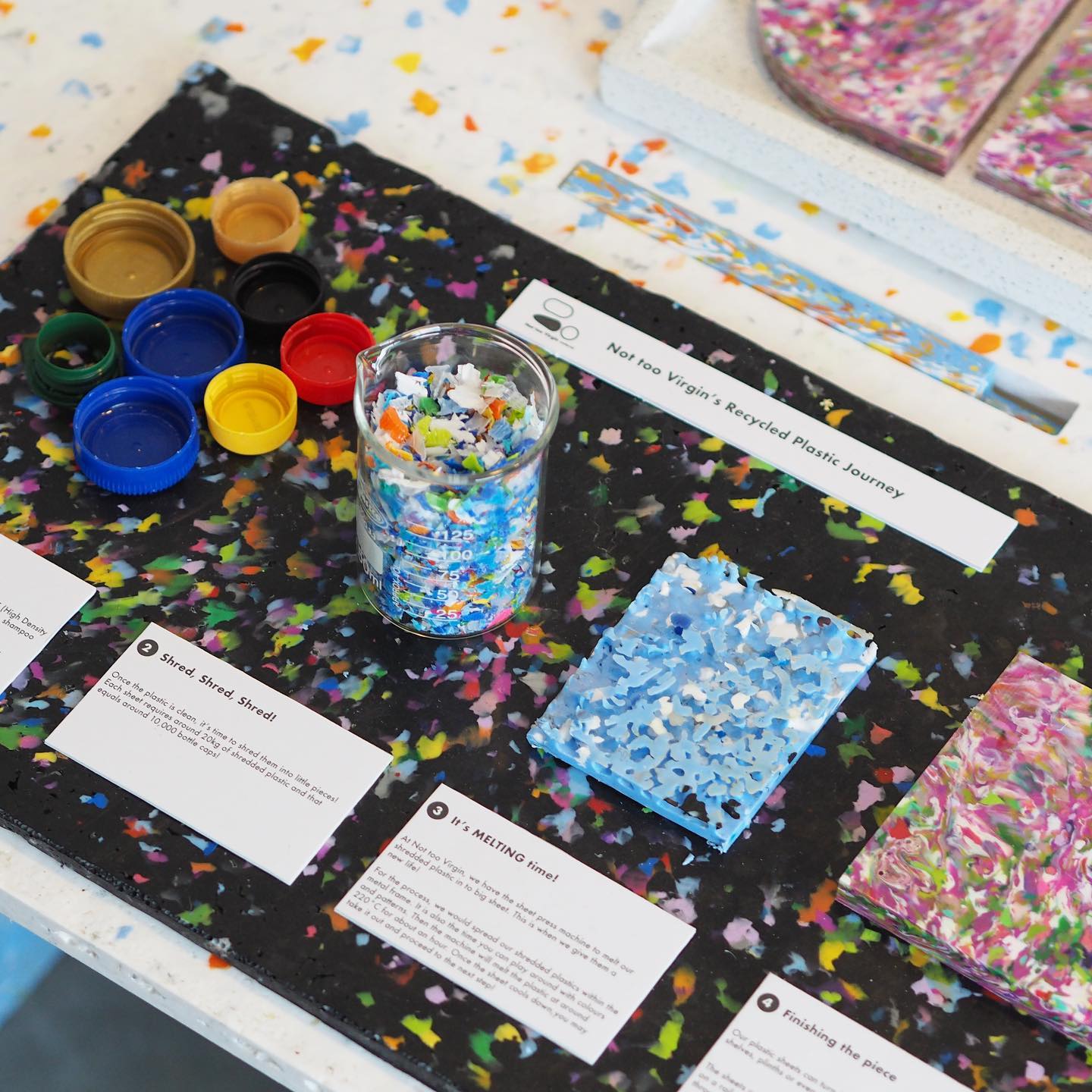
Because every step of the recycled plastic sheet production process is done by hand, the pattern and color arrangement can be done in infinite ways, not to mention the size and shape flexibility. These recycled plastic sheets can be made into a wide range of products, including furniture such as tables, chairs, and shelves.
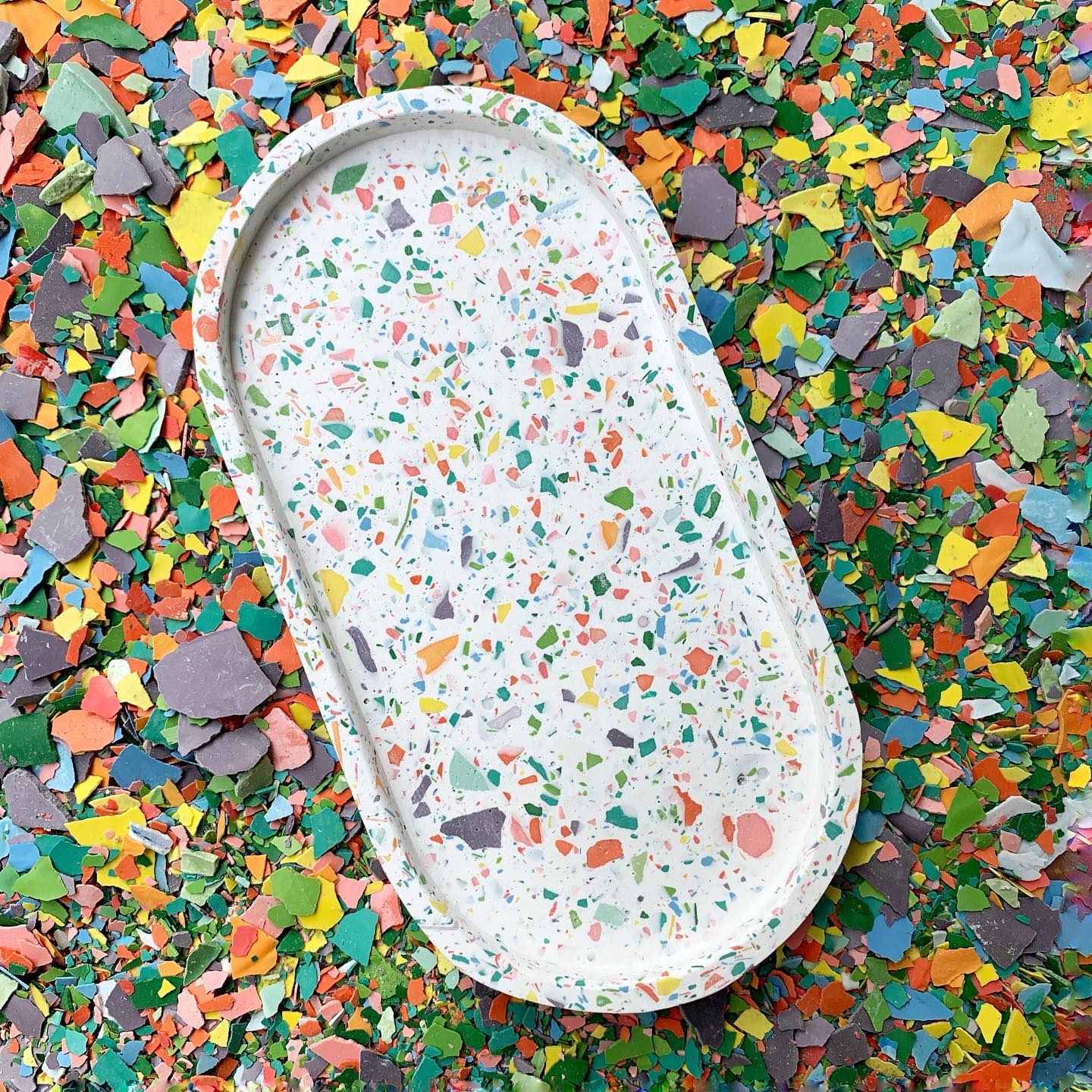
In addition to being outstanding in reducing waste and reusing sustainably, these recycled plastic sheets also stand out for their vibrant colors and capability to imitate the pattern of other materials, but in a more vivid appearance and with even more variety. Currently, NTV recycled plastic sheets have similar patterns to terrazzo. At this point, it emphasizes another feature in the flexibility of the sheets to create a variety of designs that can be applied to make it more colorful and bold, suitable for adaptation in various forms.
Almost at the same time, Kwanchan and Sirada also ran into Jesmonite – another interesting sustainable material that is characterized by a variety of colors and the properties of the material that meet their visions. The duo experimented with the new material themselves first, and later on, they created some home decoration items from this green material. Today Not too Virgin Design Lab has become the only distributor of Jesmonite in Thailand.
This alternative material is not only environmentally friendly but also takes into account both the makers and the users. The material is in line with the wishes of the two founders to have alternative materials for students and laypeople to use in creating artworks without toxic substances that are harmful to the body. It is due to the properties of water as a mixture free of solvents and volatile organic compounds (VOCs), which cause air pollution.
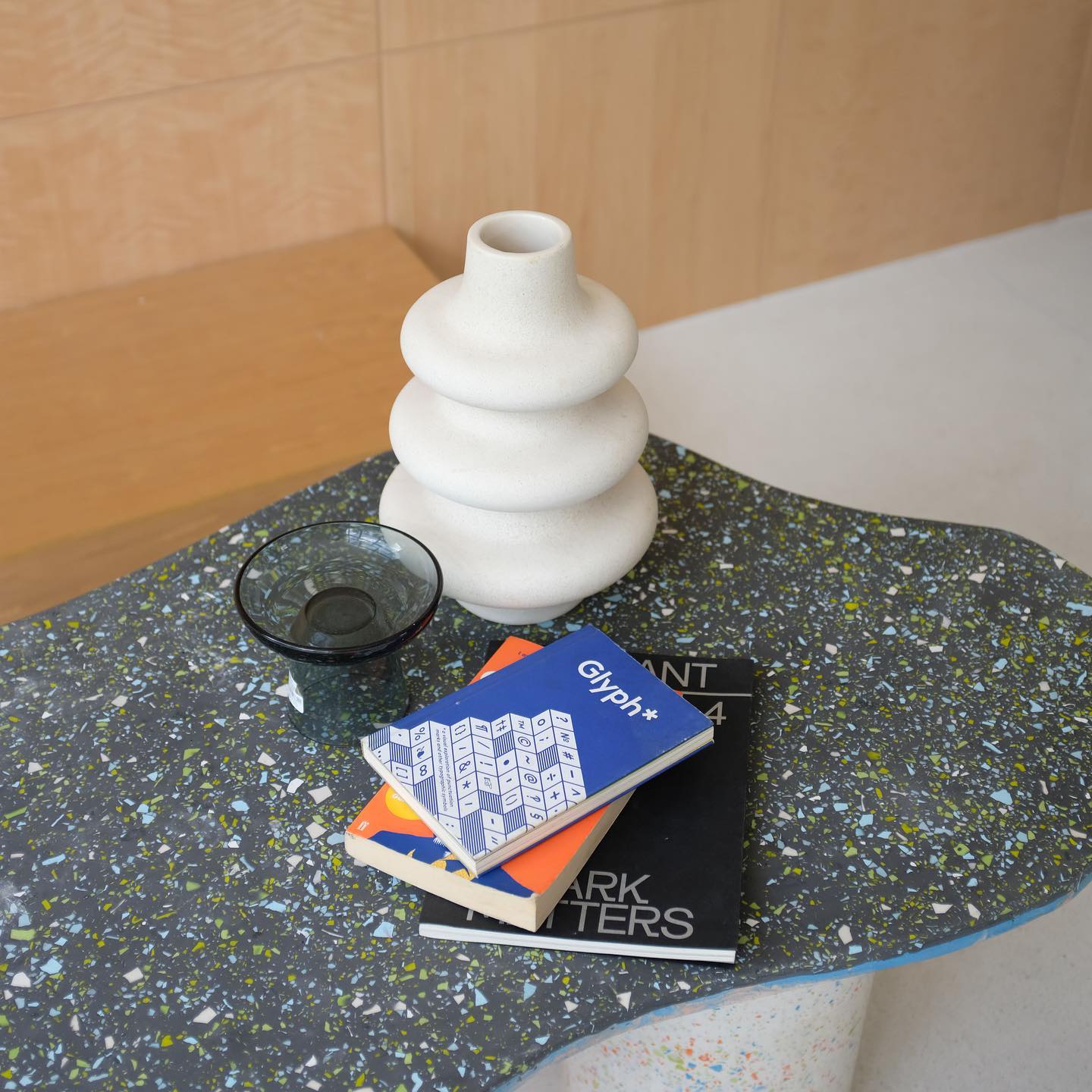
Jesmonite has a smooth, durable surface. It comes in various colors and can support a variety of patterns and forms due to the nature of the material when mixing two components, powder and liquid, together. There will be a dense material that supports mixing colors to create patterns freely with marble and terrazzo patterns that are popular nowadays. Jesmonite can solidify into a strong, durable material in less than an hour.
Jesmonite performs similarly to concrete but is non-toxic and can be used for various designs, including traditional building materials or resin products. There are many formulas of Jesmonite to accommodate different specific applications. Not Too Virgin Design Lab has selected the Jesmonite AC100 formulation as the only option since it supports many applications. It can be small designs like jewelry, home decoration, or furniture, Including interior decoration like the bar countertop, and even works of art like sculpture or installation, and many others. As it says, “The Boundless Possibilities of Materials.”
“There are a lot of new materials these days, including things that arise from new things. As times go by, the waste is increasing more and more. Day by day, more and more stuff pollutes our environment. It would be nice if we have something beautiful and environmental-friendly. That should meet the lifestyle of today.”
The focus on ‘not too virgin/ used materials’ is central to the design lab, in addition to reducing the creation of new materials that will become waste in the future. It also reverses the process of picking up endpoints, such as plastic waste, as the starting point for creativity, which will not only reduce the increase of new stuff but also reduce the amount of precedent at the same time while developing and presenting an implementation model. Not too Virgin Design Lab has recently worked with more than 7 design studios to bring these two alternative materials to create different types of furniture and home furnishings in the exhibition ‘POP THE CHERRY’ at hidey.house between 29 July – 28 August 2022.
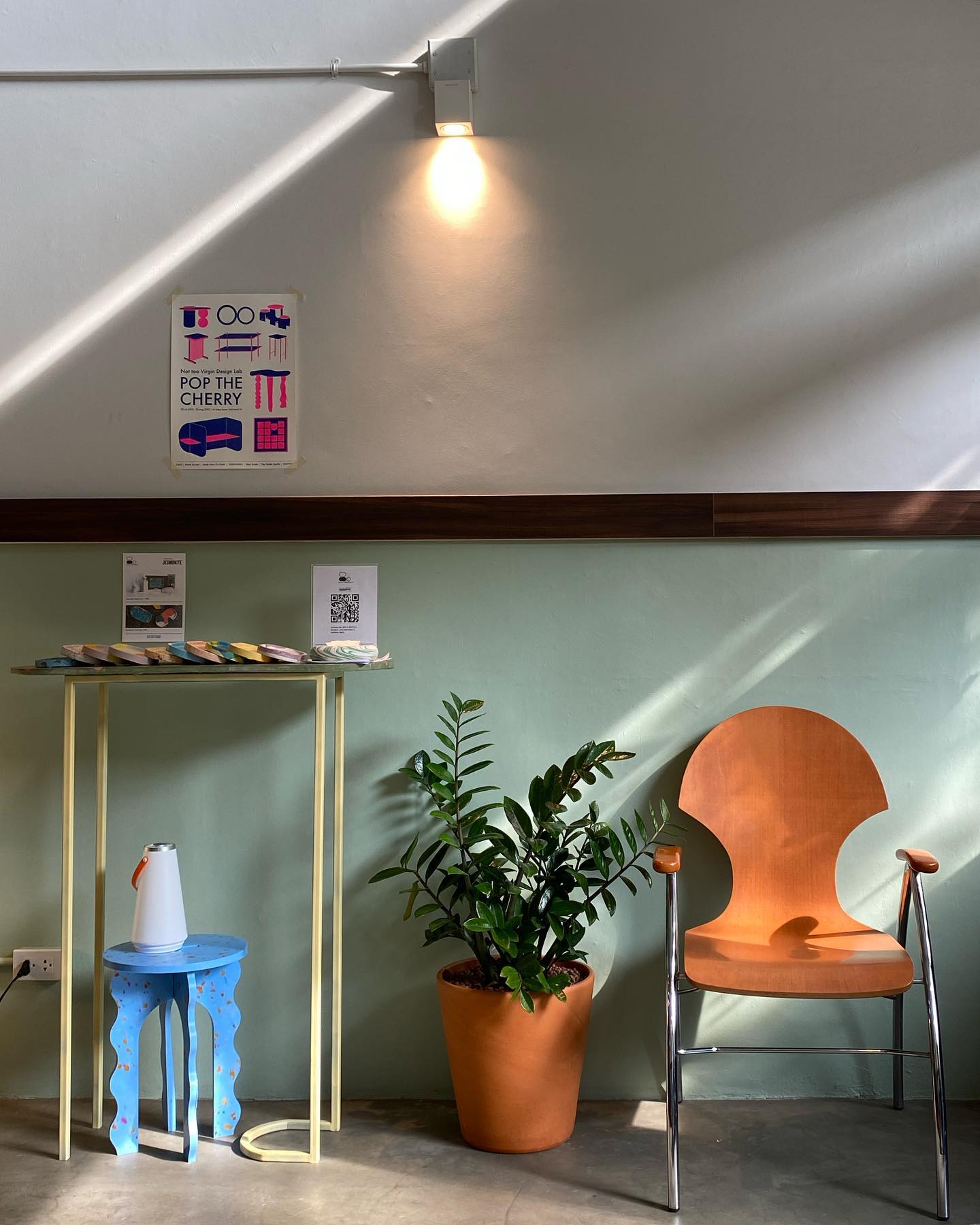
Photo courtesy of hidey.house
Kwanchan and Sirada are still working their way to search for more new alternatives. For the two founders, it all starts with being a user and understanding the nature of that material expertly and then presenting it as another alternative for others.

